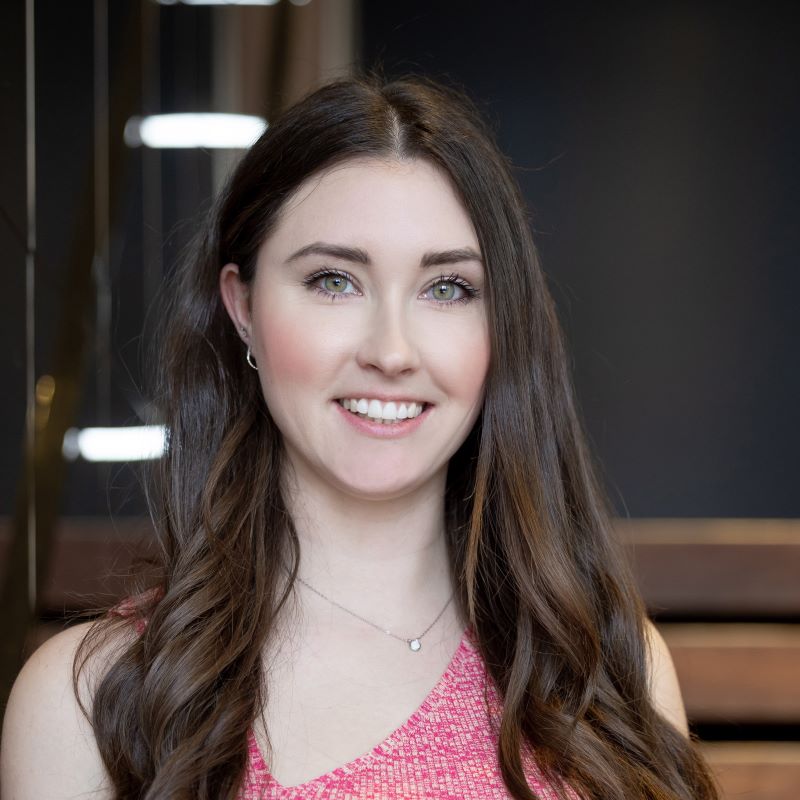Why businesses need to be deliberate about development
Change management, leadership and technological adoption.
Why You Should Care
COVID has done for digital transformation, what 1000 CEOs couldn't do.
Deliberately Developmental Organizations see the increased maturity and sophistication of the individuals in the company is a competitive advantage.
If the change process is just an IT change, it doesn't stick.
Change management is one of the big HR buzz words of the moment. Unsurprisingly, there’s nothing like a global pandemic to call into question how we prepare, equip and support individuals to successfully adopt change. In light of this, a few weeks ago, the UNLEASH team interviewed Dr. Alan Watkins.
Dr. Watkins is the founder and CEO of Complete, a leadership consultancy that works with 100 multinationals on issues of leadership, transformation, and cultural change. We discussed with Alan what he thinks of change management and consider with him how organizations need to focus on becoming deliberately developmental for success.

barrelofthelens via Twenty20
UNLEASH: I’m interested to know what are you seeing now in terms of HR and COVID-19? Are you starting to see any benefits to either course of action or does it just depend upon the sector and what they’re focused on?
Dr. Alan Watkins: Well, we’re seeing a very wide range of responses. In our client base of 100 multinationals, some clients furloughed 97% of their staff, some clients didn’t furlough anybody and didn’t reduce salaries in any of their staff. We were seeing the full spectrum. Some are in a shutdown-bunker mentality, and some of them are in an accelerated change mentality. Every flavor under the sun is what we’re seeing. I think it depends on the sector and the individual company. Obviously, companies that have government contracts are faring much, much better. And then there are those that are particularly affected like in the travel industry who are really struggling and having to look at all sorts of more heroic moves to just survive and get to the other side of this.
COVID has done for digital transformation, what 1000 CEOs couldn’t do.
UNLEASH: We’ve also seen the remote working and digitalization plans that people have been putting in place over the last few years have also had to come to the forefront. Are there any lessons that are coming out from that phenomenon of mass, remote working, and digitalization processes and the fast-tracked implementation of these?
Dr. Alan Watkins: Yes, I would say so. COVID has done for digital transformation, what 1000 CEOs couldn’t do. However, I don’t think the changes that are happening either in the HR community or in the wider corporate community are just restricted to digital transformation. A lot of companies we’re seeing are looking at the way that they need to transform their entire organization – creating developmental business models, new organizational design, new flexible contracts, and flexible working practices.
as everything becomes digital, then the quality of your people becomes the strategic edge.
The old notion that people are our most important asset is becoming much sharper into focus as organizations are realizing that wasn’t just lip service, and it’s completely true. The real companies at the cutting edge are starting to think about this idea that emerged in America called a DDO or a ‘Deliberately Developmental Organization.’ A Deliberately Developmental Organization sees that the increased maturity and sophistication of the individuals in the company is a competitive advantage. Meaning, as everything becomes digital, and we’re all more clued up with that, then the quality of your people becomes the strategic edge. We’ve seen HR directors who’ve already started to migrate from an HRD to a CHRO (Chief HR Officer) or in some companies to a CPO. We think the future is they will become CDO’s – Chief Development Officers driving Deliberately Developmental Organizations.
UNLEASH: So, in a move to being more developmental or a DDO, what’s the framework that companies need to underpin that?
Dr. Alan Watkins: Well, we must stop our obsession with measuring the wrong stuff in organizations. For the last 40-50 years, many companies have been burning an awful lot of cash on assessing personality or topology or strengths. As fascinating as that is, it doesn’t predict the future. And what’s weird about that is that if you look at the entire leadership literature, one of the clear messages is there isn’t one type of leader that always succeeds; there isn’t one personality that always succeeds; there isn’t one set of strengths that always succeeds. So why do we keep measuring that stuff? The smarter organizations are starting to realize that, there’s a new assessment methodology, not based on the description of the leader or the individual but based on the developmental level.

alinabuzunova via Twenty20
This is developmental assessment, not descriptive assessment. Thus, what matters more is not what type of leader you’ve got, but how mature the leader is. To use a sort of analogy if you take age as a very blunt proxy for development, it doesn’t matter whether you’re an introverted or an extroverted six-year-old, the problem is you’re six and this job needs a twelve-year-old. It doesn’t matter whether you’re an agreeable or disagreeable six-year-old, the problem is you’re six-years-old. Therefore, it’s the level of maturity that counts in driving performance, particularly in a complex accelerating world. Organizations are beginning to wake up and they need to completely transform their whole approach to talent pool management, and particularly assessment of talent.
UNLEASH: This leans into the element of the report, which we’re publishing around why HR technology projects have been failing and the lessons around the concept of change management. This concept is also more pertinent than ever given we are in the middle of a period of such rapid change in the face of Covid-19 especially for organizations who are used to controlling the change that they want. What do you think are the key takeaways for organizations around this kind of enforced change that could be beneficial to them?
We’re going through basically 10 years of change in three or four months
Dr. Alan Watkins: COVID-19, like any dramatic change, is sort of crunch time. We’re going through basically 10 years of change in three or four months and it creates a huge amount of intensity. At an individual level, you need people who are much more adept and comfortable in the face of uncertainty. There’s a brilliant article in the Harvard Business Review by Bill Tolbert showing the more mature leaders, the more sophisticated leaders, are much more adept at driving change and successfully, so we need more mature people at the individual level.
One of the things that’s interesting in a crisis is that people often say, “we pulled together really well”. Part of the reason that is, is people are aligned in pursuit of a common goal in overcoming the crisis, whether in this current context it’s the survival of the business, or fighting the virus. When people align, they work in a more what’s called ‘pro-social’ way, i.e.. they work more collaboratively together. There’s less silo, there’s less ego. So not only do you need more mature individuals, but you need to work in a much more collaborative fashion than we’ve ever done before. There’s tangible changes to the way of working like Flexi-contracts, Flexi-hours, that kind of thing that we can work through but then there’s a reimagining of the future – what’s our vision, ambitions, purpose, strategy, all of that stuff needs to be reviewed, given that the world is changing very quickly now.

sakiloveproductions via Twenty20
UNLEASH: HR technologies have moved into a phase of constant change and a lot of companies are implementing these new technologies year on year, they’re looking at the systems and there’s an ambition to get them right, but they’re consistently not. Is there something that can help organizations to prepare employees and support them through these changes?
Dr. Alan Watkins: I generally think that companies need to lean into something called network analysis. We do quite a lot of this with our client base, and that’s look at the organizational chart, which many companies use, and is a 1910 technology. There aren’t many bits of 1910 tech that we still believe in so why do we still believe in the org chart? It’s a very blunt view of the company and frankly, it’s completely irrelevant. The company doesn’t work like that at all. It’s a much more fluid and organic system.
When you do some network analysis, what you’re doing is looking at how people are connected inside the system, and it gives you the real chart. It doesn’t really matter whether you have a hard line or a dotted line to people, as what really matters is are you connecting to them in a meaningful way and in a consistent way.
Last year we did this with a large Middle Eastern bank and predicted 17 resignations in a row. We’ve done it in terms of workforce planning. So as companies realize that they must reshape their workforce in response to the COVID crisis, they need to know who they must retain, and who are the people whose roles are redundant. Rather than go with the view of the CEO, or the HRD, which is just one person’s opinion, the smartest person in any organization is everyone. So if you ask everyone who do you turn to for stretch, for energy, for support, and you get everybody to submit their data and then you do big data analytics on this you can identify who the real influencers are, who the movers and shakers are, and use that data to drive the change and developmental process. I think that will become de facto in most organizations because it’s a way of mining the wisdom of the crowd inside a company. And as I say, the smartest person in any company is everybody.

hazelmathias via Twenty20
UNLEASH: We can see a recognition that organizations and individuals want to get to that point of being able to utilize AI to help them perform analysis such as this, but also an understanding that in order to have strong use of that technology you need good data in the first place to be able to feed into the machine to get the insights. How can companies help themselves to structure their data and understand that to make informed decisions?
Dr. Alan Watkins: AI is just an accelerant. If you’re thinking going in is dodgy, AI will just make it worse – it’s the maturity and the sophistication of the thinking that really matters. In terms of the C-Suite, being a DDO (Deliberately Developmental Organization) puts that right at the heart of your strategy. What really matters is having really mature, sophisticated individuals using technology in a suitable and precise way.
Companies shouldn’t expect that they are the experts in this type of cutting-edge technology. What we are seeing as organizations morph to adapt to the future, is they’re becoming what we call three-layered network organizations with a semipermeable membrane. The old silo (whether it’s a silo by geography, by category, by product or service) is already dissolving, and the notion that there’s a hard boundary between who works for a company, who’s outside a company, that’s also dissolving. We think this is the model of the future as the crowd is already morphing in this way. Boundaries are blurring as companies will be insourcing and outsourcing all sorts of different technical capabilities or leadership capabilities, or whole functions like HR. So, it’ll become a much more fluid, organic, adaptive, developmental model.
There is this notion of the survival of the fittest in a crisis. Darwin never said, ‘it’s survival of the fittest,’ that’s a misquote. What he said is the ‘survival of the most adaptable.’ The ones that really flourish moving forward are the ones that adapt most to change. And if you’ve got a more fluid, organic, model, it makes you more adaptive, more agile. And that’s what you really need in a disrupted world.
UNLEASH: How do you help people in an organization have a more adaptable and developmental mindset, but also have a mindset that enables them to question the adaptations that are taking place to make sure that they’re the correct ones?
Alan Watkins: We think of it in terms of helping people to realize that they’re three-dimensional, not one-dimensional. Over the last 25 years of working with hundreds of multinationals around the world, one of the interesting things is many leaders are what we call ‘addicted’. They’re addicted to task, target goals, metrics, outcomes, largely because that’s what they get hired for and that’s what they get fired for – delivering the numbers. But, that’s just one dimension of what it means to be a human being. Of course, we’ve got to deliver numbers, we’ve got to have a grip on the system. And we’ve got to have a clear strategy but that’s not the only thing we need to pay attention to. We need to pay attention to the world of ‘we’ in terms of the interpersonal world of relating. As Peter Drucker said many years ago, ‘culture eats strategy for breakfast.’
DrIn a COVID world, you must deal with people’s anxiety about the economic impact that we’re about to really get stuck in. You must deal with people’s emotions, people’s fear, people’s anxiety, and you also must address their relationships with each other. The smart companies are realizing that and taking a much more sophisticated and developmental, multi-faceted approach to the future, not a one-dimensional task and target and metric approach.
UNLEASH: It can’t just be the HR function, or even the CEO saying, ‘right, this is the way we want to approach it’, so how can leaders in businesses sell that into their colleagues so that they understand why that needs to be across all of the business?
Dr. Alan Watkins: Well, it’s not a theoretical model. It’s a description of reality. For example, as you and I are talking you’re having thoughts about what I’m saying. And I’m having thoughts about what you’re saying. So that’s your eye and my eye. As we’re talking, we’re relating to each other, so that’s the weed that exists between us right now. Even in this moment, there’s an eye and there’s a weed between us, and there’s something that we’re doing, so it’s a description of our lives. Our lives are multi-dimensional, not one dimensional.
The start point is to help people to realize we’re multi-dimensional. Therefore, if you don’t embrace all dimensions, you won’t solve the problem, because all problems exist in all three dimensions. As an example:
- Because of COVID I’m scared, that’s an AI issue.
- I’m now working from home, so I’m more isolated, that’s a Wi-Fi issue.
- I’m not clear what we need to do moving forward, that’s an IT (Information Technology) issue.
So, we must address the AI, the WIFI and IT. And that’s at every single level of the company because that’s the truth of our lives. We are multi-dimensional.
UNLEASH: Out of all the 700 or so projects we investigated, only 15% of people said they were fully satisfied. Why is that number so low? Why do you think that is?
Dr. Alan Watkins: Well, if the change process is just an IT change, it doesn’t stick if you don’t take the people with you. If you’re not relating effectively to the people, they won’t execute the change. If they feel disempowered or ignored because you didn’t manage the relationship between you and them, they won’t go with you. If they feel anxious about the future, that anxiety will disable their motivation to do whatever you’re asking them to do. So that’s why, change management fails not because it isn’t the right thing to do, but often because you’ve got individuals who feel uncertain or are worried or anxious. That is what is disabling progress. If change management merely focuses on the change itself, and not on the individuals and on the relationships and culture, it fails, that’s why it’s so low. We must take a multi-dimensional view and for the leadership, we must see the maturity of the individuals – it’s the sophistication and strength of our relationships that drive the ability to transform things in it.
UNLEASH: Finally, with your organization and you coming in and people working with you, how does that happen? What’s typically involved in that process?
Dr. Alan Watkins: Well, we honestly believe that we need brand new thinking. The world is in crisis, and we need fresh thinking. There’s the old Einstein thing, that you can’t solve the problems of today with the same level of thinking that created those problems, you need new, developmental thinking. That’s what we offer to say, look, you can transform these things. You can grow out of a crisis, you can accelerate your business, change management doesn’t have to fail. Human beings don’t have to fail. Feeling anxious and worried is optional. You don’t have to have toxic cultures or struggling strategies, you can transform it. When we work with our clients, it just starts with a conversation. We start talking to the C-Suite and say, look, you may not realize but you know, your world is multi-dimensional, not one-dimensional and there are huge things you can do.
To the budget point, if you’ve got a tradition or history of spending most of your money on the IT dimension and wondering why it’s not really giving you the return, that’s because you have failed to recognize it as an ironweed dimension. We’ve seen for example, in one of the big retailers in Europe that we worked with over the last two years, that we really got a grip of that leadership team. We added 180 million pounds to their bottom line in 18 months. Why? Because the leadership team started to lead much more effectively. It transforms that’s something like 1600 times ROI, and there’s nothing in it. Then we have the leadership team, get that team really humming, and it transforms. So engaging with us simply starts with a conversation, an email, somebody reaching out saying, you know, can you come in for a chat we start chatting, sharing this developmental thinking, and showing them what can be done to transform their organization.
UNLEASH: You’re coming in at the very top to help organizations as a whole but if you’re an individual, who’s either working within an organization, whether it’s more on the tech side, or maybe more on the functional side, what actions can they do to start influencing change within their organization? What would you be advising an individual?
Dr. Alan Watkins: Well, we’ve put a huge amount of the stuff that we teach in the C-Suite on an online platform. We’re now building academies for various clients to give this knowledge and this understanding to a much wider base within the system. There are huge things that individuals lower down in the organization can do. We’re just building a wellbeing program for several clients, where we empower the individuals to transform their own wellbeing, because the only way to change my wellbeing is if I personally take a separate set of actions. The organizational responsibility is to provide that information for the employee base. And then the employee’s responsibility is to practice the stuff they need to practice improving their wellbeing. So, in partnership, employer and employee can transform the wellbeing. So, we’re building out wellbeing programs for several clients. And you can roll out these programs on a tech platform to a much wider base now in this digital world we work in.
Sign up to the UNLEASH Newsletter
Get the Editor’s picks of the week delivered straight to your inbox!

Head of UNLEASH Labs
Abigail is dedicated to connecting HR buyers with the technology and tools they need to succeed.
Contact Us
"*" indicates required fields
Partner with UNLEASH
"*" indicates required fields